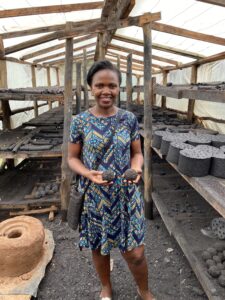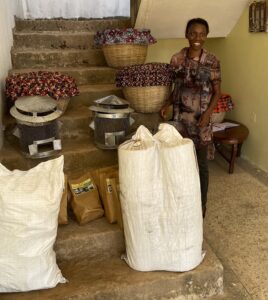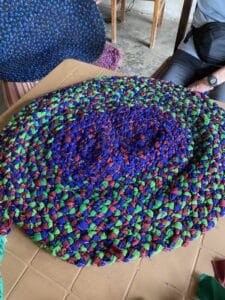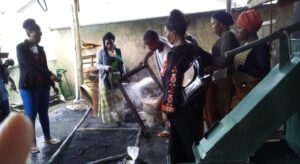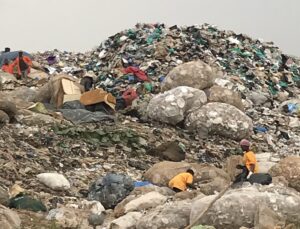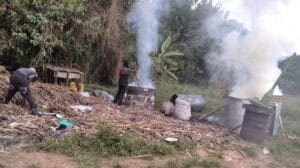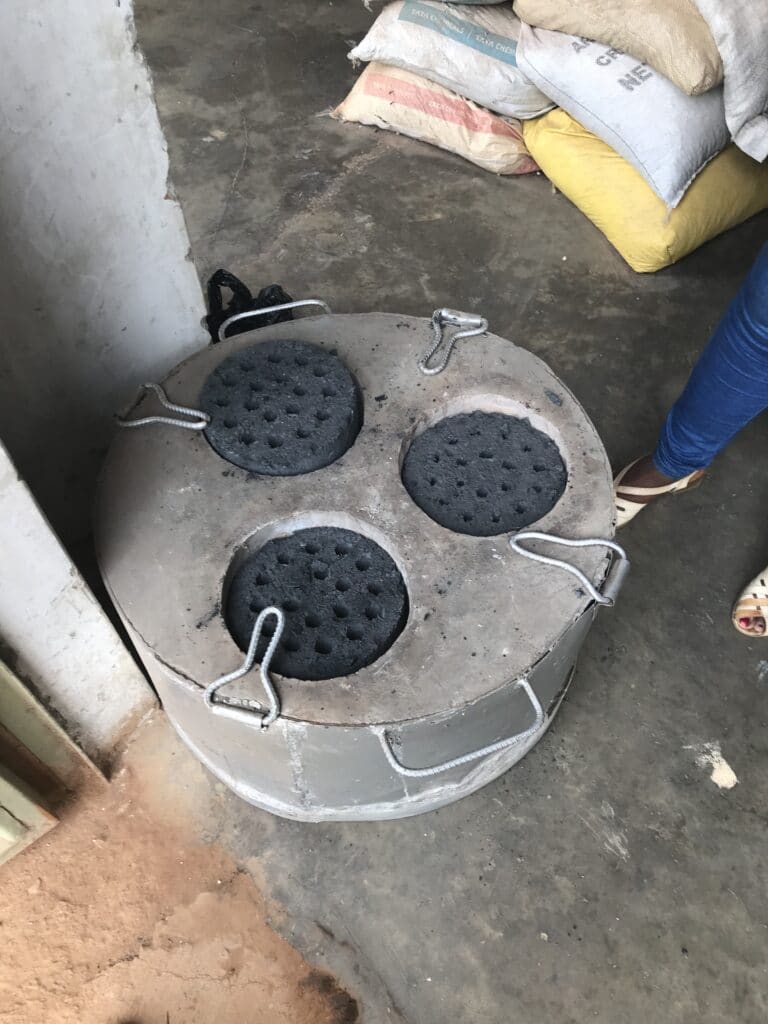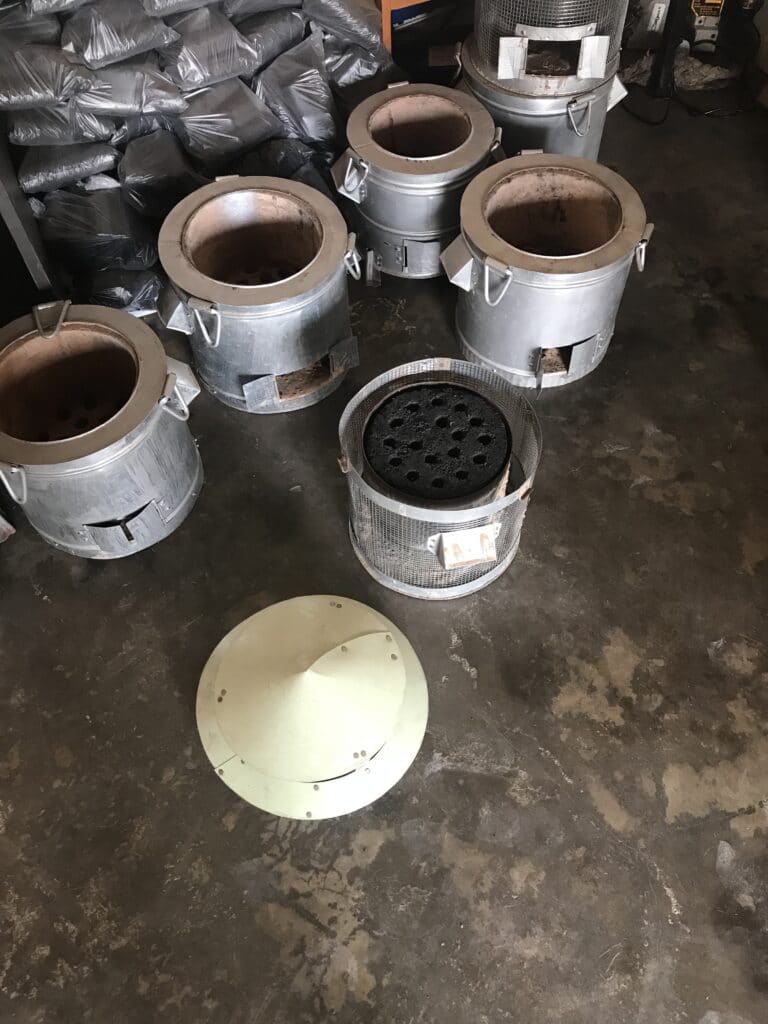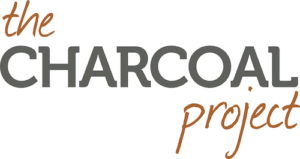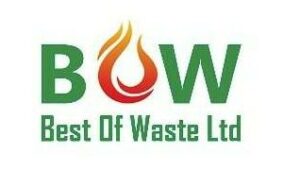The Charcoal Project is seeking to expand its relationships with social impact investors to help facilitate funding for participants in the renewable biomass fuel sector, who are often unable to access traditional capital markets. We recently helped arrange a loan between Betty Zizinga Kaddu at Best of Waste Ltd (BOW) in Uganda and the 3rd Creek Foundation. I sat down (virtually) with Betty and Gwen Straley of 3rd Creek to discuss Betty’s business and what this social capital will do to impact BOW.
Inspiration and Getting Started
TCP: Betty, what inspired you to start BOW?
Betty Kaddu: There was a lot of waste in our neighbourhood so I trained and engaged women in the area to make briquettes from the waste for our own use to cut back on the fuel expenditure and to keep our area clean. They produced more than we could consume, but they kept knocking on my door for work. In order not to discourage them, I had to look for a market for the excess. So I formalized and registered a company – Best of Waste Ltd.
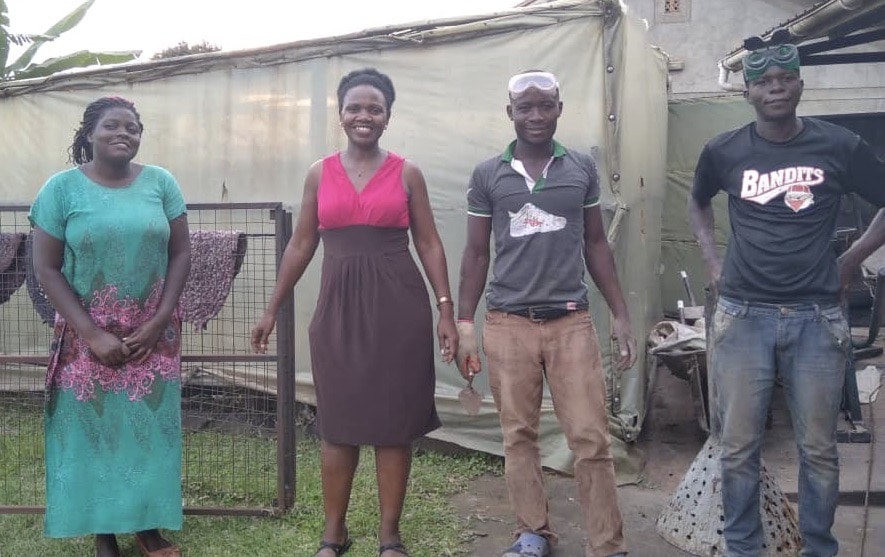
TCP: How did you get started? Did you have capital from friends and family? Outside investors?
Betty: I had just left formal employment and was doing freelance tax consultancy, so I used personal savings and earnings from the consultancy to start.
TCP: Gwen, tell us about the mission of 3rd Creek Foundation and your role there as Executive Director.
Gwen Straley: Our mission is to help individuals achieve economic independence. When we break this down further, what we’re really focused on is helping individuals experiencing extreme poverty increase their earnings (&/or savings), ideally to the extent that they can move themselves and their families out of poverty completely. My role as the Executive Director is to work with our board on setting 3CF’s strategy, and then manage the implementation of our grants, impact investments, and networking to meet our vision.
Accomplishing the Mission
TCP: Betty, what products are you producing and selling and how do you see those as beneficial to the local population?
Betty: We make and sell briquettes, energy saving stoves, doormats and flowerpots, all from recycled waste material, like organic kitchen waste or fabric ends from the tailor. The briquettes are economical because they provide a long lasting fire, and being smokeless, they are safe to use. We clean the environment by utilizing the waste and provide employment to people in the value chain.
TCP: What type of waste are you using to make your briquettes? How is it collected and processed and by whom?
Betty: We use organic waste in the form of food peelings, bagasse, maize cobs, sawdust and charcoal fines. Initially, we would get the waste from our households and neighbors’ households. We now partner with waste-pickers at the nearby Kiteezi Landfill, who we have trained to carbonize the waste and supply it to us for a fee.
TCP: Tell us about your cookstoves and how your distribution strategy for the stoves fits with your distribution strategy for the briquettes.
Betty: When I started, we were producing briquettes only, but customers were asking for stoves that would burn the briquettes well. We realized a sharp increase in briquettes sales when we started selling energy saving stoves alongside the briquettes. The customers for whom we made custom stoves became tied and repeat customers for the briquettes. So we make it attractive for the customer to buy the stove so that we can have them as long-term briquette customers.
TCP: What customer segment do you target and how are you able to reach them with your marketing and distribution efforts?
Betty: We target households and distribute to them directly through hired delivery motorcycles (bodaboda), retail shops, kiosks and market stalls that sell the fresh food. We also have two outlets where we display our products and service customers directly. For social media outreach, we use Facebook and Whatsapp. We also subscribe to Jumia and Safeboda for online marketing.
TCP: Gwen, what types of investments does 3rd Creek make and how does it use social capital to accomplish its mission?
Gwen: We invest in small to medium enterprises that, through at least some components of their business models, are helping to alleviate extreme poverty. This can mean a variety of investments. For example, we invested in a small food manufacturing business in Vietnam with a mandate to hire some employees and suppliers from disadvantaged backgrounds. We’ve also invested in a Tanzania agri-processing equipment manufacturer, whose business model saves smallholder farmers a tremendous amount of time to get their crops ready for market. More recently, we invested in a Rwandan enterprise to upgrade two clean water facilities in neighborhoods outside of Kigali which serve impoverished populations with accessible, clean, and affordable water.
By extending these low interest loans, 3rd Creek Foundation puts more portfolio capital to work on its mission and helps small social enterprises access much needed (and often hard to come by) affordable financing.
Making an Impact
TCP: Betty, in addition to the number of people you employ directly, how many others (retailers, waste pickers, char suppliers, etc.) generate income from BOW’s activities?
Betty: In addition to the eight people we employ directly, 26 people who are retailers, kiosk or market stall vendors benefit from our activities. We also have 126 waste pickers at the Kiteezi Landfill who are registered in the partnership and 5 suppliers of charcoal dust. So over 160 people generate income throughout the value chain of our products.
TCP: The COVID-19 pandemic has been disastrous for many small businesses in Uganda and around the world – how have you coped to keep your business running and service your customers?
Betty: Luckily, briquettes and fuel in general, is an essential product and people needed fuel to cook throughout the pandemic. So we were able to continue production with minimal operations, working in shifts. We had a sharp decline in sales due to total lockdown of schools that were bulk buyers, but we registered new household customers and orders online, through Facebook and WhatsApp. We also got a micro grant from The Charcoal Project that helped us revamp our operations when the lockdown was partially lifted.
TCP: Gwen, what qualities are you looking for in a business that you invest in and what attracted you to Best of Waste in Uganda?
Gwen: We look for businesses that impact the ultra poor. We assess the entrepreneur or leadership team’s commitment to serving people in extreme poverty with sustained solutions, their drive to grow their business, and the likelihood of their ability to repay the loan. Best of Waste Uganda shined in each of these categories. Through Betty Kaddu’s pointed leadership, Best of Waste Uganda reaches populations experiencing extreme poverty with meaningful solutions across its entire supply chain. It offers better incomes and additional skilled labor for waste pickers who supply the raw materials. It offers dignified jobs for briquette manufacturers. It offers increased incomes for clean charcoal distributors. And finally, it translates to increased savings among all households in the Kampala metro area who purchase the product, since the clean burning charcoal briquettes are cheaper than alternative cooking fuel sources. Then there are ancillary benefits like improving health outcomes for women and children, protecting forests from deforestation, and mitigating climate change. Best of Waste’s casts a very wide social impact net.
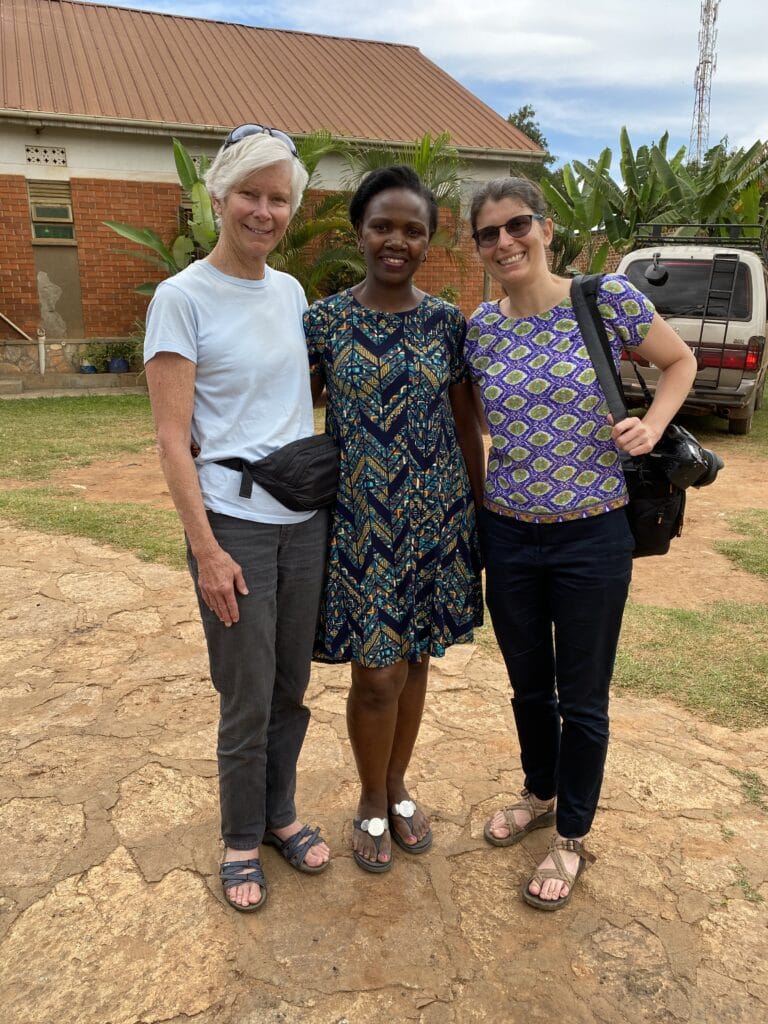
Access to Capital
TCP: Betty, as a female entrepreneur in East Africa, how difficult has it been to find the financing that you need for your business? Up until now, what types of financing have you been able to access?
Betty: Lack of collateral and high interest rate have discouraged me from getting a loan locally. The margins on briquettes are too small to service these high interest local loans at the current level of production. I have used personal savings and soft loans from family members to grow so far. We received microgrants from The Renewable Energy Business Incubator in 2015 ($8,000), The Tony Elumelu Foundation in 2017($5,000) and on two separate occasions from The Charcoal Project, in 2019 ($1,000) and 2020 ($250). This December, we have been privileged to get a loan facility from 3rd Creek Foundation of $12,000.
TCP: Just recently you secured a $12,000 loan from 3rd Creek Foundation – how will this loan benefit BOW and what will you use the funds for and how will it transform your business?
Betty: The loan is for working capital needs – buying raw material for briquettes and stoves in order to have a stock buffer of 20tons and 300 stoves monthly. We will be able to facilitate the waste pickers with more carbonizing drums to ensure bulk supply of processed waste material. With this inventory cushion, we will be able to service larger orders and take advantage of market opportunities without being so constrained by resources.
TCP: Gwen, what do you see as the key challenges that Betty Kaddu faces as she grows her business?
Gwen: I think the pandemic still threatens to pose a significant challenge. Another lockdown in Kampala could put a big hold on bulk orders for customers like restaurants and schools. However, Betty has a track record of leading the company through 2020, innovating and piloting new distribution and marketing models as circumstances warranted.
Inspiration and the Way Forward
TCP: Betty, what people and organizations have helped and inspired you on this entrepreneurial journey?
Betty: When I started, I received the first training from Living Earth Foundation, this exposed me to other players in the briquettes sector who became valuable networks for my growth. I then joined the Renewable Energy Business Incubator (REBI) program, which exposed me to renewable energy technologies and formalizing my business. The Advancing Sustainable cHarcoal Enterprises at Scale (AScHES) Convening in October of 2018 (organized by MIT D-Lab and The Charcoal Project), exposed me to briquette producers and their capabilities internationally. I am inspired by Betty Ikalany (AEST Ltd, Uganda) and Chebet Lesan (Bright Green Renewable Energy, Kenya), for being women briquettes producers and the recognition they have brought to the briquettes sector.
TCP: As you take your business to the next level, what words of advice do you have for other aspiring clean energy entrepreneurs in Uganda?
Betty: Get down, get your hands dirty, the reward may not be monetary, but it’s satisfying as a way of life through the social, economic and environmental impact you create, one day at a time.
TCP: Gwen, what advice do you have to entrepreneurs looking to access social impact capital? What’s the best thing they can do to prepare their business for potential investors?
Gwen: Leverage your connections to make the introductions to potential investors. We met Betty Kaddu and Best of Waste through The Charcoal Project, who had prior years of experience working closely with the company. Virtually all of 3CF’s impact investments have come through similar introductions. We simply don’t have the capacity to vet cold call applications, and most other investors don’t either. Beyond that, entrepreneurs should know their business models well, have a clear plan for the requested investment, and be able to speak to that. It also builds trust when an entrepreneur understands and can explain the risks of lending to their company to a prospective investor. We like to hear about how a full repayment could be compromised, rather than an unlikely picture that our loan is completely secured.

